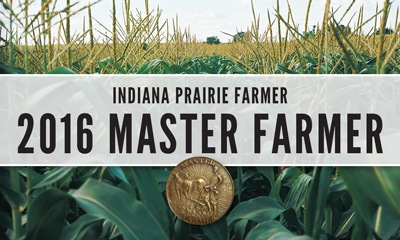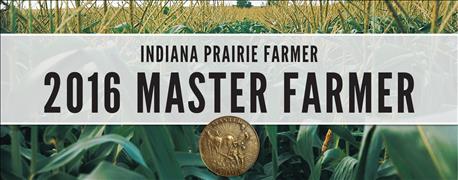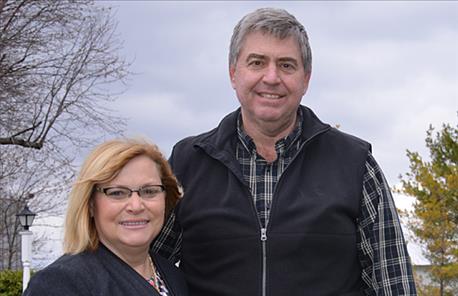
Diversification is the name of the game for Tom and Karen McKinney. They operate a multifaceted crop operation, a seed business, and a machinery service and supply business, and are on the lookout for other ventures that might be profitable.
Tom grew up near Kempton in Tipton County, and likes to say he’s been farming for 50 of his 57 years. Karen joined the operation when she and Tom married in 1981.
“Our biggest enterprise is crop farming, but we do more than just raise commercial crops,” Tom says. “We try to take advantage of the opportunities we have, and grow what appears to have the most profit potential for the business.”

Today, that’s primarily corn and soybeans. A sizable portion of the soybeans they grow is for seed under contract to DuPont Pioneer.
“We also grow a significant amount of Plenish soybeans,” Tom adds. “They are high-oleic soybeans developed by Pioneer. We deliver those to the ADM plant in Frankfort.”
Those soybeans are used to make Plenish oil. Growing in demand, it offers consumers a healthy alternative in cooking oils.
When it comes to corn, most of their acres are devoted to commercial corn that’s grown either for ethanol or food production. Recently, they’ve grown some seed corn for Beck’s.
Change over time
The operation has always been diversified, but hasn’t always been made up of this particular mix of crops. Until a couple of years ago, the farm included a more traditional method of diversification: livestock. The McKinneys raised hogs until 2014.
“Our buildings were getting older, and when we took a hard look at the industry and what fit our farm operation best, we decided to quit,” Tom says.

MULTIFACETED BUSINESS: Tom and Karen McKinney diversify their operation by engaging in various business ventures.
In earlier years, the farm raised a much larger amount of seed corn for Pioneer. Tom and Karen also operated a detasseling business. That changed when Pioneer moved a large chunk of its seed corn production to Plymouth. However, the company still maintains a large processing plant at Tipton. That’s where the McKinneys deliver the seed beans they grow every year.
“At one time we would have anywhere from 150 to 300 teenagers on our payroll detasseling corn,” Karen recalls. "We would detassel up to 1,000 acres each summer. Our son, Scott, and daughter Amy assisted us with that project."
Other ventures
A seed dealership was a separate business that helped diversify the overall farm operation. Tom and his dad, Mark, operated the Pioneer seed dealership for decades. It’s still a robust business today, Tom says. However, two years ago Austin Henderson became the primary dealer, with Tom and Mark continuing as associate dealers.
That’s not the only business venture they are involved in. With the help of a full-time employee, Neil Cline, they are dealers for Precision Planting. That involves offering a full line of products to upgrade technology on planters, and it also means providing service to farmer-customers.
“One reason we built our office was to have space to operate these businesses,” Tom says. “We have a conference room equipped with TV monitors so we can bring farmers in and show them our products, and also provide training.”
The McKinneys may not be done diversifying yet. “We may add a small amount of wheat, primarily so we can get an early start on tiling,” Tom says. They own their own tiling equipment.
“We haven’t torn the hog buildings down yet because we’re investigating another business venture first,” Tom adds. “We think aquaculture might be an option to make use of those facilities.”
Diversification is the name of the game on this farm!

About the Author(s)
You May Also Like




